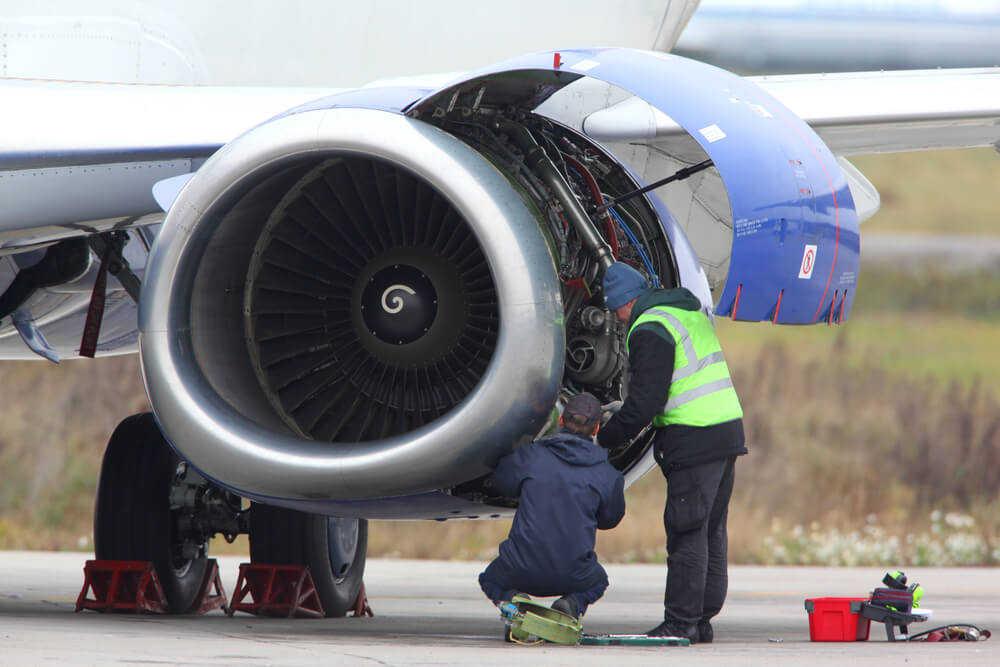Russia is losing the race against time to eliminate the dependence of its airlines on Western manufacturers by raising domestic production.
Recently announced plans for civilian aircraft delivery from Russian factories indicate that even if fulfilled, they would not replace the fleet produced in the West, not even by the end of this decade.
One of the manufacturers, Kazan Aerospace Plant (KAPO), announced it will deliver the first Tupolev 214 aircraft, the Russian version of the Airbus 321, next year. The model was developed in the early 1990s but without commercial results.
Due to Western sanctions that have hit the Russian aviation industry hard, the Government in Moscow entrusted this manufacturer with the task of manufacturing 70 planes, which would replace Airbus and Boeing aircraft in domestic companies.
However, starting in 2025, the Kazan factory will only be able to produce 10 aircraft per year, and from 2027 onward, a maximum of 20 aircraft annually. Any larger production would be unprofitable.
Unachievable and ambitious Government plan
The production plans of the industry in Kazan are limited by the lack of electronic equipment produced in the West, which is also the biggest obstacle to the Russian government's plans to replace Western aircraft with domestic ones.
According to September 2022 plans, the Russian industry should produce as many as 1,000 passenger planes by 2030, marking the end of dependence on Western manufacturers.
Judging by the shy announcement made by one of them, KAPO from Kazan, which is ready to deliver only one aircraft in the next year (it is still unknown who the buyer is) and a maximum of 70 by the end of the decade, this state plan seems far from achievable.
The unsolvable problem that makes the Russian government's plan unfeasible is the supply of high-tech components crucial to production
The unsolvable problem that makes the Russian government's plan unfeasible is the supply of high-tech components crucial to production, which Russian manufacturers used to procure in the West before the sanctions.
One is related to Russian-French cooperation regarding the production of engines for the Sukhoi Superjet 100. Russia is still searching for a domestic replacement.
Due to the same reasons, the production of the Yakovlev MC-21, which should make up almost a third (270 aircraft) of the total plan of the Russian government to transition the fleet to 100 per cent domestic aircraft, has been significantly delayed.
The government in Moscow indirectly admitted that it could not keep up with its own fleet change plans by abandoning cooperation with China in the production of the new, wide-body CR929.
The cooperation involved the critical electronic components manufactured in the West, which disqualified Russia as a partner.
10% of the fleet seized
The announcement that domestic TU-214 deliveries would begin the following year coincided with the acknowledgement that 76 aircraft belonging to Russian companies had been confiscated overseas since the imposition of sanctions, and it probably should have softened that recognition.
"We were unexpectedly caught off guard”, said Vitaly Savelyev, Russian Transport Minister. He admitted that 76 planes have been seized at airports globally due to the sanctions.
This is about 10% of the Russian civilian fleet produced in the West. Western giants Airbus and Boeing manufactured about 800 out of 1,100 passenger planes in Russia.
The Russian government has since re-registered that same number of aircraft from foreign leasing companies to Russian ownership, committing something similar to international piracy.
In the coming years, Russia's struggling air transport industry will remain at the mercy of circumventing sanctions, which has been the principal manner to supply its carriers with the spare parts necessary for the safe operation of traffic.
 Russian air carriers will increasingly rely on so-called "cannibalism" (removing parts from the existing fleet)
Russian air carriers will increasingly rely on so-called "cannibalism" (removing parts from the existing fleet)
Due to sanctions, Russian carriers can only fly to 11 countries in addition to domestic flights. Three-quarters of the fleet consists of Western aircraft, maintaining their basic functioning through the existing channels for essential replacement parts delivery.
The principal suppliers are from "friendly" markets, such as China, UAE and Turkey, which are not among the countries that have directly imposed sanctions on Russia. The inflow of Western technology to Russian airlines often came, on a smaller scale, from the West but through third countries, often Kazakhstan.
However, the 2 latest packages of EU sanctions and stricter control of the implementation of sanctions by the US reduce the scope for further circumvention of sanctions, which leaves Russian air traffic increasingly stranded and its passengers at risk of unsafe flights.
Plans to replace the Western fleet with domestically produced aircraft are not feasible, even within the multi-year timelines mandated by the Russian government. During that time, and with the tightening of spare parts smuggling, Russian air carriers will increasingly rely on so-called "cannibalism" (removing parts from the existing fleet) or acquiring unlicensed copies, which is even less safe.